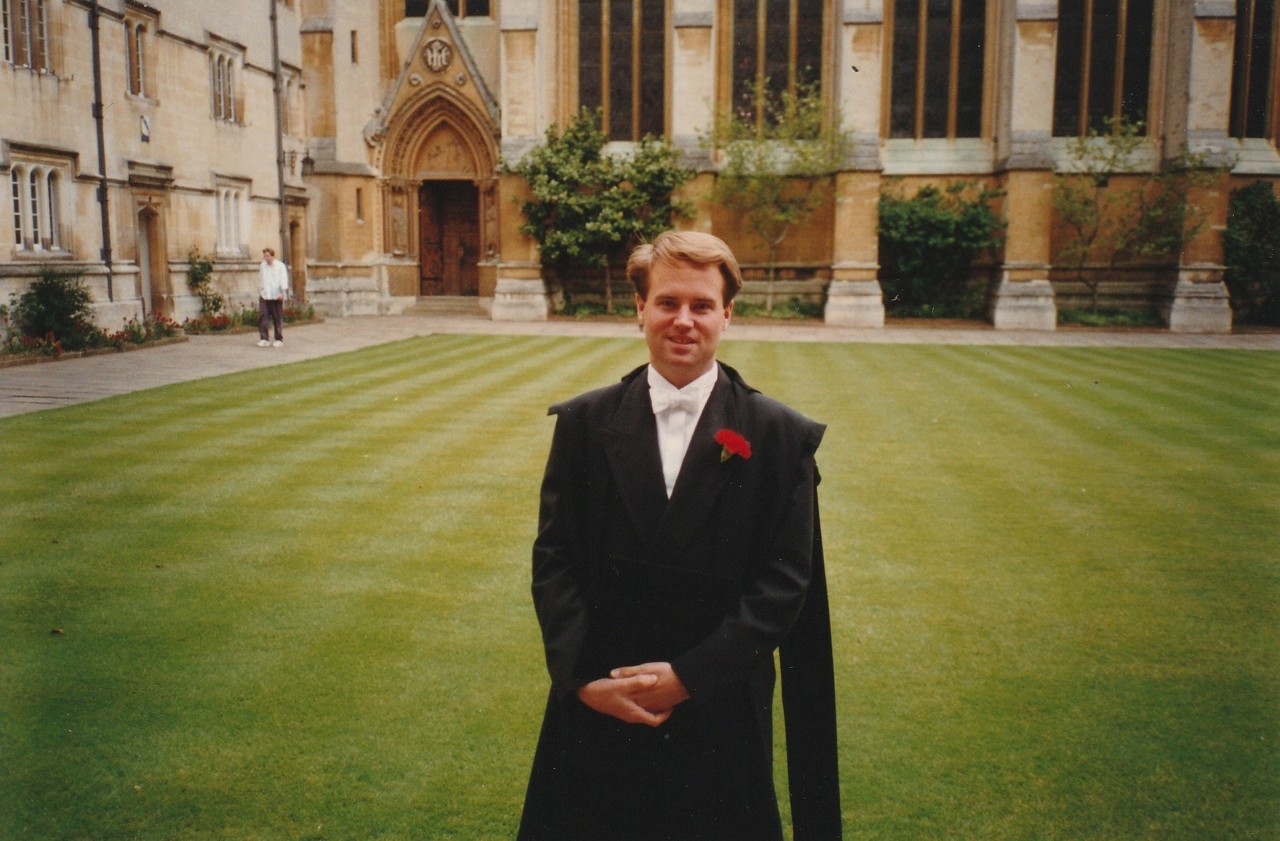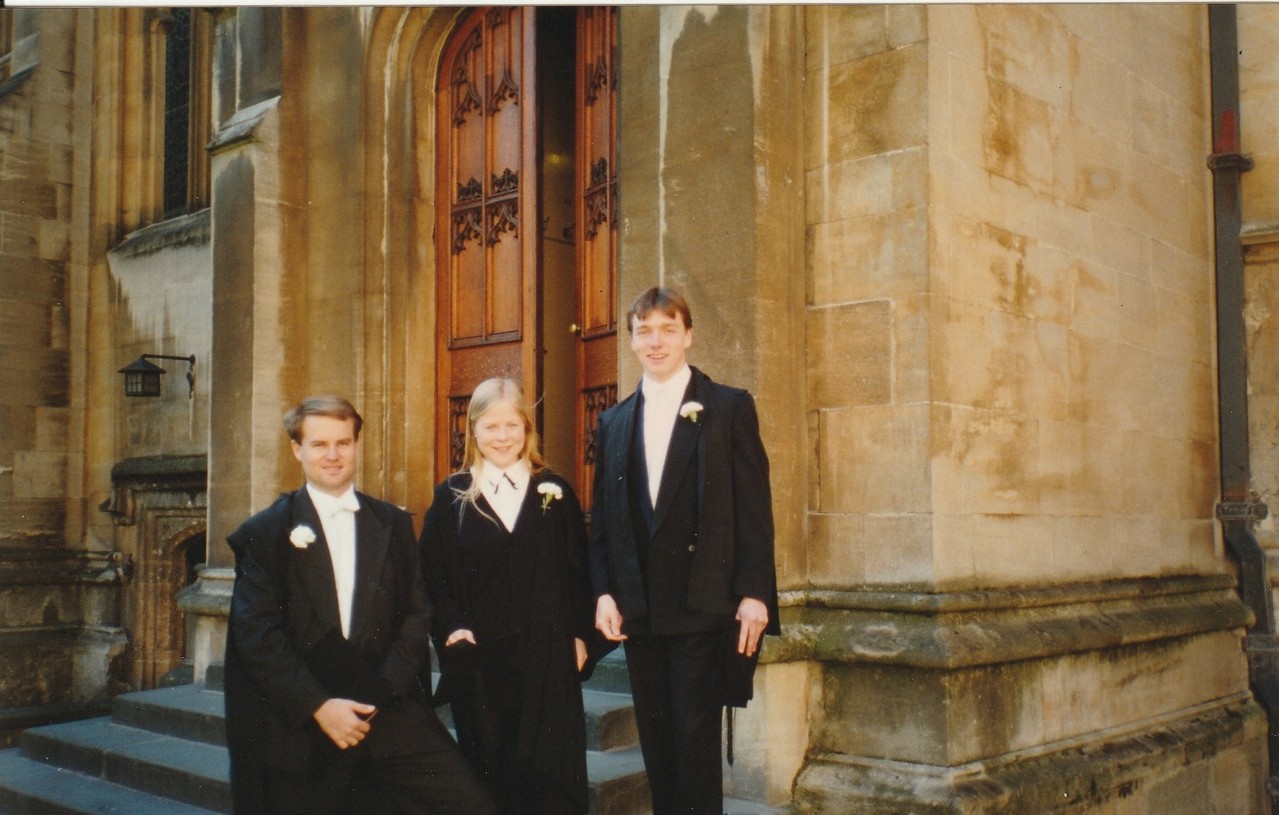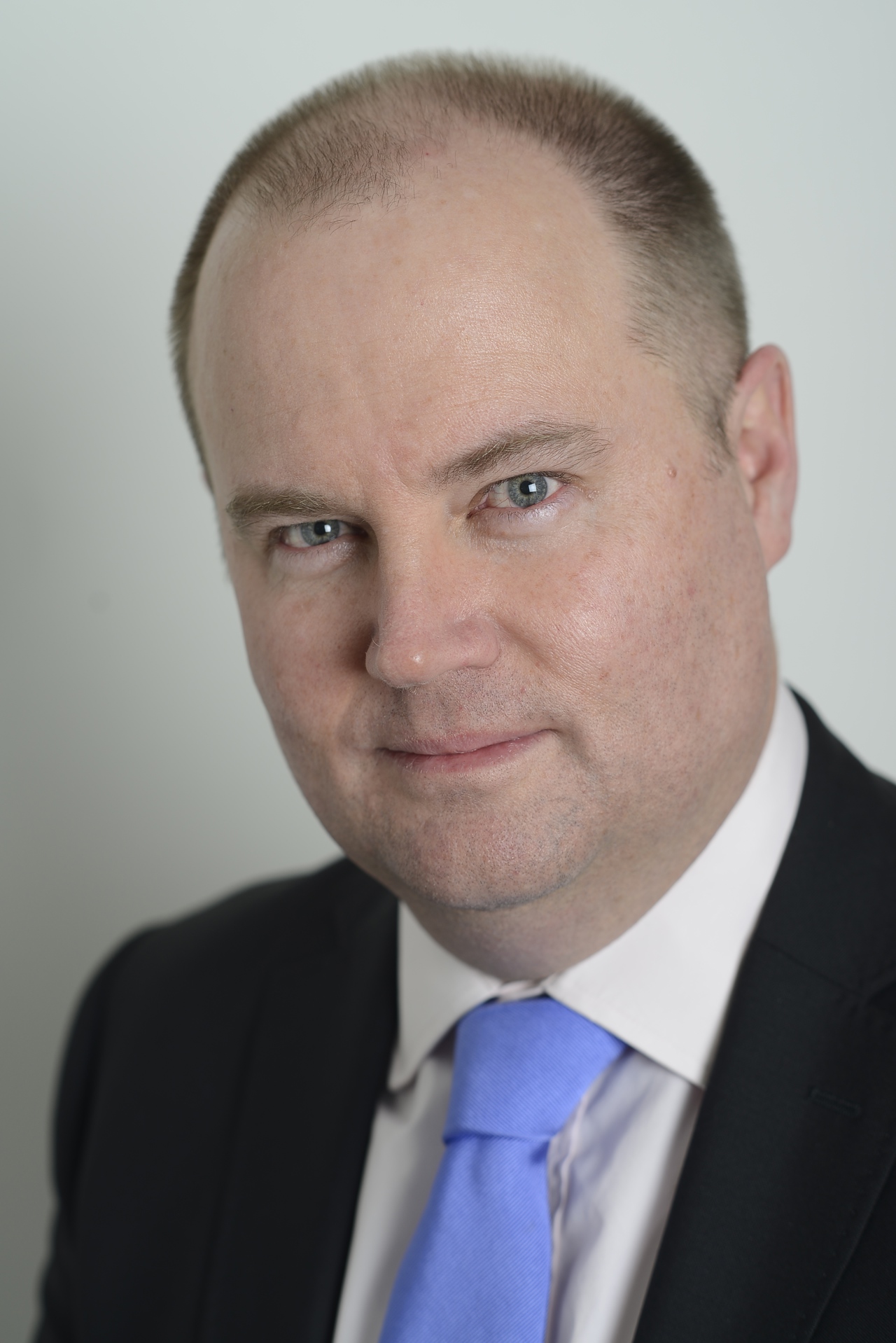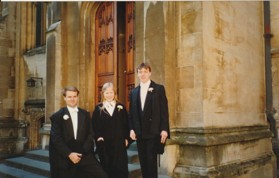Born in Harare, Zimbabwe in 1969, Alan Bedford-Shaw studied accountancy and information systems at the University of Cape Town before going on to Oxford to read PPE. After qualifying as a chartered accountant, he took up a position in Standard Bank in Johannesburg, where he is now Head of Corporate Development. This narrative is excerpted from an interview with the Rhodes Trust on 13th November 2023.
Alan Bedford-Shaw
Zimbabwe & Exeter 1993






‘I was very lucky’
My father was from the East End of London and had fought in the Second World War. He and some friends decided to drive down through Africa after the war was over. He got to the Copperbelt in Zambia and decided that was a better place to be than the East End in post-war austerity, so he settled there and got into the motor trade. When he arrived in Zambia he was Bob Shaw, but he was asked to change his name because there were too many Bob Shaws in the town. So, as he sold Bedford trucks, he became Bob Bedford-Shaw. He passed away when I was nine years old. My mum, Coragh Gibbon, was a schoolteacher (teaching very much ran in her side of the family) and she was second generation born in the country, and her heritage is mostly Irish.
We lived in suburban Harare (as it is now) and it was a very comfortable upbringing, despite the fact that there was a conflict in the country during most of my childhood. For my high school education, I got a scholarship to a boarding school called Peterhouse, about 100 kilometres east of Harare. It was an excellent school with very good teaching. I remember my Latin teacher in particular, John Coates, who effectively bribed us into studying hard by telling us good stories. I had very little idea about the world of work at that time, but I did have some careers guidance that suggested I should go into the financial field. And I was very lucky that when I needed to find funding to go to UCT, I was offered bursaries by what was, in those days, Pim Goldby (which later became Deloitte).
On applying for the Rhodes Scholarship
Obviously, I was aware of the existence of the Rhodes Scholarship, but I never thought of myself as being Rhodes material. A friend of mine suggested that I should try and I thought, ‘You know, there’s nothing to lose.’ I didn’t really think very much more about it. I was doing well at university and keeping active and taking on leadership roles, but my main focus was on passing my board exam and finishing my articles. When I went back to Zimbabwe in 1992, I applied, and I have to say that, although I’m no shrinking violet, I did find the interviews intimidating. I think that would be everyone’s experience, and I guess it should be testing. I was overjoyed to be selected. Going to Oxford was something I could never have afforded: my father passed away when I was nine and my mum had been raising me alone. So, being selected for the Scholarship was a bit like buying a chocolate bar and finding a golden ticket inside.
‘The learning experience set me up for the career I’ve pursued’
Coming from where I had grown up, the cultural, musical and intellectual opportunities that were available to me in Oxford were light years ahead of anything I could have found at home. I do have to say, though, that at first, the learning experience was overwhelming. I was blessed with a photographic memory, and as long as I took good notes and learned them well, I’d always been able to pass my exams with very good marks. So, coming to Oxford and being told, ‘Here’s your topic for next week and here are 20 books you should read,’ was pretty difficult to manage. You had to learn very quickly how to ‘gut’ books, how to do the best you could with the information you had available to you. And it’s given me the ability to take a difficult, unstructured problem and find relevant information and synthesise that information into something coherent to suggest a solution. Still, today, my boss says I write very good reports, so I guess you could say I came away with some useful skills!
I also really, really enjoyed rowing at Oxford. I’d done a bit at school, but this was a huge commitment. I think it’s probably the ultimate team sport, because you absolutely have to do everything identically to the rest of your crew. Alongside that, the opportunities for international travel were fantastic. I had some very memorable travels in continental Europe, and also across to America.
I would say about my time in Oxford that the only downside was the weather. It was a big shock to realise that, unlike at home, blue sky didn’t automatically mean you could wear shorts. But as part of the Scholarship, I did get a warm clothing allowance!
‘I do think there should be more reinvested in Africa’
Undoubtedly, the Rhodes Scholarship had a huge impact on my life. It was an unbelievable experience, both educationally and in terms of broadening my horizons, and I hope that it’s made me a better person and a better citizen. Looking back on it, the only sad thing was that many of the Zimbabwean Rhodes Scholars didn’t end up going back to Zimbabwe. Most were going on to work or study in the US or the UK.
I think it’s one of the challenges, that the Rhodes Scholarships give people this massive academic leg-up in life and sometimes, you aren’t able to leverage that educational advantage in your own country. People will naturally gravitate to where they’re going to achieve their potential and be able to monetise it. When it comes to the future of the Scholarships, I do think that there should be more being reinvested in Africa. Given that the money that set up the estate that pays for the Scholarships came primarily from Africa, I feel that the countries that bore the cost should potentially get more of the benefit. I think it’s important, too, that we’re purposeful about retaining Scholars in their communities.
After Oxford, I worked in in financial services in the UK for a short while just to earn some money and then I went back to Zimbabwe to finish my articles. I had a very good experience working with Deloitte there, getting a real breadth of experience doing audits for everything from the Reserve Bank to a sugar cane estate in the lowveld of Zimbabwe. It was not long after I’d finished my articles that I got a call from a friend I’d been with at the University of Cape Town who asked whether I would like to go and work for Standard Bank in Johannesburg. And at that time, I was concerned about the state of Zimbabwe. It had had its first major economic collapse in 1997 and was on a downward spiral. I don’t have siblings, so I have a responsibility to support my mum, and working for Standard Bank seemed to be a very good option.
So, I don’t work in Zimbabwe now, but I am at least in South Africa and I’ve been economically active and involved in civic society there for a very long time.
I’m especially proud to be part of an organisation that has as its focus uplifting and improving the quality of life for people on the African continent. Standard Bank’s chief executive, Sim Tshabalala, has articulated a very clear and compelling purpose for our group: ‘Africa is our home, we drive her growth’. I love my work, because I never face the same challenge two days in a row, and it’s also really nice to be able to point to the history of an organisation that you feel is making the world a better place and say, ‘I’ve played a part in this.’
‘Grab every opportunity that you can’
From a personal perspective, I’m a family man. It’s very important to me to be the best parent that I can and the best husband that I can, and to be a good citizen. I also think it’s important to give back, and that’s why I’ve included the Rhodes Scholarship in my will. I’ve been very fortunate in my life as the beneficiary of scholarships at high school, at the University of Cape Town and at Oxford, and if you’re in a position to give back, then I think it’s very important to do so.
I would say that the Rhodes Scholarship offers you an unparalleled opportunity. When you’re at Oxford, it’s easy to get blasé about it, because there is so much on offer. It’s a bit of an eternal place with very enduring institutions and wonderful traditions and the Rhodes Scholars, in particular, draw together so many different perspectives. You really need to grab every chance you can, whether it’s catching a debate at the Union or an exhibition at the Ashmolean. Very few places and very few times of your life will offer you that richness of choice again. I’m happy and blessed and proud and, most importantly, grateful to have been given an opportunity to participate and to drink deep from that fountain.
